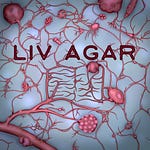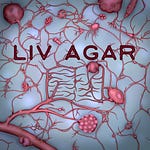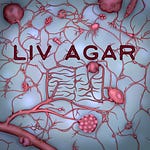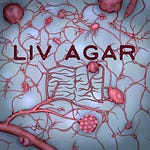During the early stages of the pandemic, many leftists fell into a moral conundrum concerning lockdown procedures. When, in general, we would advise one to rebel against the state apparatus and not listen when it screams “stay in your home, do not go outside,” there was a fairly logical indication that to protect people’s lives, we should encourage the enforcement of public health procedures (done by the state and the police). While there were specific instances where the “advice” of the state apparatus was ignored (e.g., the Black Lives Matter protests), the general position of most anti-capitalists has been an unwilling submission to safety protocols for the sake of the general well-being of those at risk from the virus.
To even bring up this problem, one must, of course, differentiate one’s position from the typical associations that come from the claim that “the pandemic is being used to control us,” a comment usually inspired by a worldview primarily drawn from the chan message boards and Q drops. The primary distinction between the leftist concern for the state’s intervention into our daily lives and the anti-masker’s is compassion and love for others. The belief that the government is authoritarian because one must wear a mask at Applebee’s can only become legible from a contemporary petit-bourgeois account of “freedom,” which is entirely unconcerned with the well- being of others. To be truly free for these anti-maskers is to engage in the “American dream” (a concept necessarily related to their idea of freedom). This translates to a desire to be able to spend whatever money one earns on whatever commodities they may dream of on the free market. Freedom does not concern one’s position at work (although many who were protesting mask mandates were seemingly business owners), the democratization of their society, or the capacity to make meaningful decisions about their life. Freedom is simply the seemingly endless, yet mind-numbingly similar, opportunities one has to spend their money on the market. For the state to intervene between the point of one acquiring money and spending it is akin to George Orwell’s 1984.
Thus, the left wing apprehension for following extreme public health protocols comes from a polar opposite cause than the anti-masker’s position. I use the term “anti-masker” to provide a distinction between the left and the right critique of state intervention in public health because the rejection of mask use is a minor inconvenience that may save lives. Those in the left position would wear a mask even if it was not mandated, out of basic care for those around them, while those on the right will not wear a mask simply because the state tells them they need to. This is why worries about lockdown measures from the left do not meaningfully spread the virus while ones on the right do (one may compare data on the minimal spread of Covid as a result of Black Lives Matter protests to the much larger spread at anti-mask protests).
The work of 20th-century French critical theorist Michel Foucault may help us conceive of the leftist apprehension, then later acceptance of public health procedures in this situation. Foucault’s position is, ironically, similar to the anti-mask science deniers (just as the anti-capitalist position is). Yet, his analysis is far more symmetrical. Foucault employs a general critique of the role that public health projects have in the discursive relationships of power that our society is contingent upon. Foucault recognizes the positive, additive nature of power in these particular instances while also showing the negative conclusions of these systems that should be resisted.
The anti-masker’s analysis begins and ends with any public health policies that deny their putrid conception of petit-bourgeois freedom. When indigenous women are forcefully sterilized by these programs, these anti maskers look away. When the Reagan administration abandoned the gay community during the AIDS crisis, these anti maskers could not care less. Yet to what extent has the left meaningfully reconciled with the power the state apparatus has in public health programs? For Foucault, public health systems are essentially predicated on letting certain populations grow and subsequently leaving other populations to die.
Beginning within History of Sexuality vol. One, Foucault develops the two interrelated concepts of biopower and biopolitics. One (biopower) typically describes how the other (biopolitics) is applied within society. Biopower is, fundamentally, a “power that exerts a positive influence on life, that endeavours to administer, optimize, and multiply it, subjecting it to precise controls and comprehensive regulations.” Biopower is, then, a power that relates to the fostering of life for certain populations within society. This is a modern invention and is a manifestation of power that is additive. It is additive in the sense that it produces more life and allows for certain sections of a population to grow.
A crucial element of Foucault’s account of power comes from the specific utilization of the French term pouvoir over puissance. Both ostensibly mean the same thing (that is, they are both translated to English as “power”). Puissance can be viewed as an abstract force or capacity which individuals may choose to exert onto the world (for reference to how this term is generally used, one may look to my previous premium episode on Nietzsche and his theory of the Will to Power, which is very accurately translated into French as volonté de puissance). Contrasting this, pouvoir is typically mobilized to describe massive regimes of power (government power, juridical power, the power of the law, etc.). Foucault wishes to challenge the typical mobilization of this word (pouvoir) as being purely repressive and destructive while being minimally discursive. When we think of pouvoir (power), it is typically conceived of as a top-down force that cracks down and represses individuals attempting to act freely. Yet for Foucault, this type of power also actively constitutes subjects by integrating them into the systems of power through techniques or mechanisms that play out in seemingly mundane and average relations. The individual does not have a “nature” that is repressed by top-down systems of power; their “nature” is actively produced by these relationships. These relationships of power allow for discursive meaning making to be possible.
One can think of the disciplinary mechanism of the exam, for instance, as a way of conceiving of Foucault’s general mobilization of the word power. The examination is seemingly mundane and not crucial when analyzing the disciplinary society. Yet, what we can find in the examination is a technique of integrating the subject into power relations that is crucial for the disciplinary society to function. The examination does not repress the true nature of the student, but instead actively draws out the production of certain types of knowledge from this student that are satisfactory for the examination process. Power is additive in that it produces this knowledge or allows for the student to produce this knowledge themselves. One may think of the extent to which they have personally learned things in school as an example of the additive, productive capacities of power.
The student learns and produces the required knowledge of the examination based upon their relationship with an instructor. Why does the instructor teach the student to produce particular truths in the examination format? This is contingent upon the instructor’s relationship with their superiors and colleagues which come to form the disciplinary institution at large. For instance, in the disciplinary institution of the school, there is a massive ‘game’ of power being played through these large sets of relationships that allow for the student to produce particular ideas that are tested. For Foucault, these relationships are predicated on the particular techniques and mechanisms of power that allow for these relationships to reproduce themselves. If this appears circular, that is because it is. These relationships form a chain of subjects held together by power, each level and the seemingly mundane mechanisms that sustain them is essential for the entire institution. Only through analyzing these chains can one meaningfully make sense of disciplinary power and the massive systems and institutions that this form of power is predicated upon.
Foucault writes that “there is no power except that which is exercised by certain individuals over others.” Foucault’s method of genealogy is contingent on analyzing these systems and their development based on the general mechanisms and techniques of power employed by some onto others. These are not abstract powers used by some to dominate others; these are a discursive set of practices employed by some onto others that form a chain of relationships bound by power. The seemingly mundane links in these chains are what one must analyze if they are to understand large institutions such as state power.
Public health programs, for instance, are pure manifestations of biopower. Biopower, as seen through a public health program, provides to certain parts of a population growth of life and protection from death. It does so, importantly, for specific reasons related to the continued reproduction of power. Biopower is very specific in its implementation. When funding for medical infrastructure, for instance, is increased in a certain area, it is done to reproduce power (which becomes possible as a result of the flourishing of the population within this area and their increased dependency on the medical infrastructure provided by government to survive). How can this process be possible except for the aforementioned chain of power relations that structure it? Even the acquisition of data and its interpretation (which is required for public health systems) functions on techniques and mechanisms of power. In its use here, power can be conceived of as having an intention but not a subject. Subjects may work to reproduce power without the active understanding they are doing so. To quote Marx: “they do not know it, but they are doing it.”
Biopower is intimately related to Foucault’s understanding of governmentality, as put forward in his 1978 lecture Security, Territory, Population. Governmentality conceptualizes how biopower is implemented and how it practically relates to individuals within a society. Within this lecture series, Foucault argues that we ought to broaden our account of ideas such as ‘governance’ outside of simply political structures and states. For Foucault, the idea of governmentality “designates the way in which the conduct of individuals or of groups might be directed – the government of children, of souls, of communities, of the sick.” This even includes what Foucault refers to as the governing of oneself, which is included within the larger societal web of governmentality.
Instead of envisioning the existence of a state which looms over us and which we must “break free” of, governmentality emphasizes the general, discursive, intersubjective ‘game’ of power that allows for the idea of the state to even become legible. What is missing in the laymen’s account of governance is an ability to account for the many ways in which strategies of power embedded within governmentality reproduce themselves without the influence of a police officer or the implied presence of a court sentence. The game of power which is played out at the ‘ground level’ away from the inner machinations of government is as crucial for the maintenance of governmentality as these inner machinations are.
Governmentality is also predicated on the work of statistics. This statistical work can generally be understood as the large-scale scientific management of populations led by the power of “experts” who decide who can flourish and who is left to die. Statistics helpfully monitor the development of populations, gain valuable data on how to influence these developments, and develop an episteme that renders biopolitical developments morally essential. This point is the primary connection between governmentality and biopower. They are less “connected” than they are necessarily conjoined, but regardless, biopower is implemented through a modern system of governmentality which builds itself upon statistics.
Public health experts may decide that certain populations are at risk; let us imagine in this example, it is gay men during the AIDS crisis. These experts can then determine what section of the general population their power may help in relation to AIDS and which section of the population their power will allow to die. During the AIDS crisis we can see that, in a majority of instances, governmentality did not extend its ability to save gay men. It instead worked to separate non-queer populations from the beginning points of infection. This is the essentially double-edged nature of biopower.
While biopower and its implementation are inherently a productive source of power, insofar as it creates life (through population growth due to public health programs that are contingent on statistical analysis), it also necessarily exists to deny certain elements of the population access to these productive properties. So while biopower may initially seem as though it merely provides support for certain elements of the population, it is also implemented to allow other portions of the population to wither away and die. This withering away may be an explicit technique of biopower to begin to destroy certain populations, or it may simply be a decision made as a result of having a lack of resources and a prioritization of other sections of the population, which are more essential for the reproduction of power relations. Regardless, this decision is still thoroughly for the sake of governmentality. One can see here how austerity allows for the biopolitical distinction to intensify itself.
One can note an important change from medieval sovereign power, where the sovereign exerts its power by either killing or allowing to live, to that of biopower, which either supports a population, allowing it to flourish or letting it die. Biopower and governmentality are far more intimate and affective towards targeted populations than sovereign power. The relationships of power that predicated the sovereign society were that of the king essentially ‘ignoring’ their subjects; a neglectful mercy. Instead of simply allowing these subjects to live, biopower forces them to be integrated more intimately within these mechanisms of power if they wish to not be abandoned. Through biopower, the state grabs the subject by the hand and says, “you will be protected from illness and death so long as you follow me.”
Importantly, what we do not lose from the development of biopower away from sovereign power is the aspect of the decision it makes (between who it will help and who it will harm) that is routed within reproducing power relations. Just as the king decides to massacre an unruly peasant village to embolden his status as sovereign, so does the system of governmentality invest in medical infrastructure for certain portions of the population. Both of these decisions are predicated on a decision related to power, one is clearly far more efficient than the other.
With the shift towards statistics and populations, society no longer focuses itself upon the protection of the sovereign. Instead, it is society itself (or populations, species, etc.) that must be defended. As a result of this shift, “wars are no longer waged in the name of a sovereign who must be defended; they are waged on behalf of the existence of everyone; entire populations are mobilized for the purpose of wholesale slaughter in the name of life necessity: massacres have become vital.” This is how the modern concept of racism and genocide have developed, for instance. So while Foucault may claim that the prevalence of biopower represents governmentality concerning itself primarily with addition (that is, the growing of life), reductive forms of power (that is, those that actively destroy life) provide a necessary supporting role to biopower. We can think of the holocaust, for instance, as being exercised through both biopolitical management of populations as well as an exercising of sovereign power against the populations deemed undesirable. Foucault says that “deduction has tended to be no longer the major form of power but merely one element among others, working to incite, reinforce, control, monitor, optimize, and organize the forces under it.”
Foucault wishes to highlight how public health systems had not sprung up simply out of society’s general desire to “help people” and make their lives better, but instead as a collection of techniques and practices of power that reinforce themselves. He is not implying that the mere existence of healthcare and treating the sick are necessarily “bad” or require genocide. Foucault’s genealogy follows in Nietzsche’s footsteps insofar as it does not wish to track the origin of a concept and either discard that concept or embrace it. Instead, it works to unearth new ways of viewing this concept and its use throughout history.
Listen to the premium (where the text form is also provided) on substack as well as here https://www.patreon.com/posts/47250498












Share this post